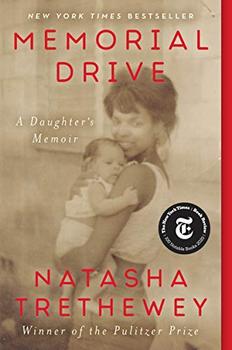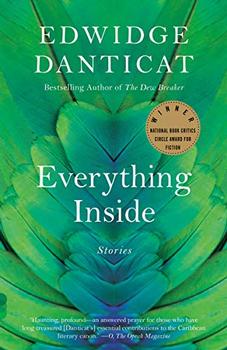Summary | Excerpt | Reading Guide | Reviews | Beyond the book | Read-Alikes | Genres & Themes | Author Bio

From the best-selling author of The Dew Breaker, a major work of nonfiction: a powerfully moving family story that centers around the men closest to Danticat's heart - her father, Mira, and his older brother, Joseph.
From the age of four, Edwidge Danticat came to think of her uncle Joseph, a charismatic pastor, as her “second father,” when she was placed in his care after her parents left Haiti for a better life in America. Listening to his sermons, sharing coconut-flavored ices on their walks through town, roaming through the house that held together many members of a colorful extended family, Edwidge grew profoundly attached to Joseph. He was the man who “knew all the verses for love.”
And so she experiences a jumble of emotions when, at twelve, she joins her parents in New York City. She is at last reunited with her two youngest brothers, and with her mother and father, whom she has struggled to remember. But she must also leave behind Joseph and the only home she’s ever known.
Edwidge tells of making a new life in a new country while fearing for the safety of those still in Haiti as the political situation deteriorates. But Brother I’m Dying soon becomes a terrifying tale of good people caught up in events beyond their control. Late in 2004, his life threatened by an angry mob, forced to flee his church, the frail, eighty-one-year-old Joseph makes his way to Miami, where he thinks he will be safe. Instead, he is detained by U.S. Customs, held by the Department of Homeland Security, brutally imprisoned, and dead within days. It was a story that made headlines around the world. His brother, Mira, will soon join him in death, but not before he holds hope in his arms: Edwidge’s firstborn, who will bear his name—and the family’s stories, both joyous and tragic—into the next generation.
Told with tremendous feeling, this is a true-life epic on an intimate scale: a deeply affecting story of home and family—of two men’s lives and deaths, and of a daughter’s great love for them both.
Brother, I’m Dying unfolds in a deliberately reserved, unornamented voice as the narrator subsumes herself into the story of her revered elders. Because of this, the passages about Danticat’s own childhood never fully snap into focus and she can only gesture toward her feeling of abandonment when her parents move to the U.S. For at least one reviewer, this self-effacement compromises Danticat’s honesty with the reader, especially since she was writing acclaimed novels and winning literary renown as the book’s events unfolded. In this reviewer's opinion, her pared-down style devastatingly conveys, without overt editorializing, the injustice and inhumanity of her uncle’s treatment in the hands of Homeland Security officials, and it delivers her grief at both men’s deaths in raw form, without sentimentality. “I am writing this only because they can’t,” she states.
Brother, I’m Dying may be about Mira and Joseph Danticat, but it also serves as a portrait of a daughter and niece’s fierce loyalty as she carves the lives of her loved ones in granite prose...continued
Full Review
(590 words)
This review is available to non-members for a limited time. For full access,
become a member today.
(Reviewed by Amy Reading).
The Republic of Haiti occupies about one-third of the island of Hispaniola (the second largest island in the Carribean;map); the remainder being the Dominican Republic (Hayti means mountainous land in the native Arawak* language).
In 1697, the French colonized the island and imported African slaves to work the lush coffee and sugar plantations. As in other colonial environments, the two-tiered society of elite whites and subordinated blacks fostered unsustainable tension. The slaves brought with them the practice of voodoo which clashed with Catholicism. The French, for their part, were exceptionally harsh in their treatment of their slaves. Lastly, a class of mulattos arose from the offspring of slaves and slave owners, creating a class ...
This "beyond the book" feature is available to non-members for a limited time. Join today for full access.

If you liked Brother, I'm Dying, try these:

by Natasha Trethewey
Published 2021
A chillingly personal and exquisitely wrought memoir of a daughter reckoning with the brutal murder of her mother at the hands of her former stepfather, and the moving, intimate story of a poet coming into her own in the wake of a tragedy.

by Edwidge Danticat
Published 2020
From the internationally acclaimed, best-selling author of Brother, I'm Dying, a collection of vividly imagined stories about community, family, and love.
The third-rate mind is only happy when it is thinking with the majority. The second-rate mind is only happy when it...
Click Here to find out who said this, as well as discovering other famous literary quotes!